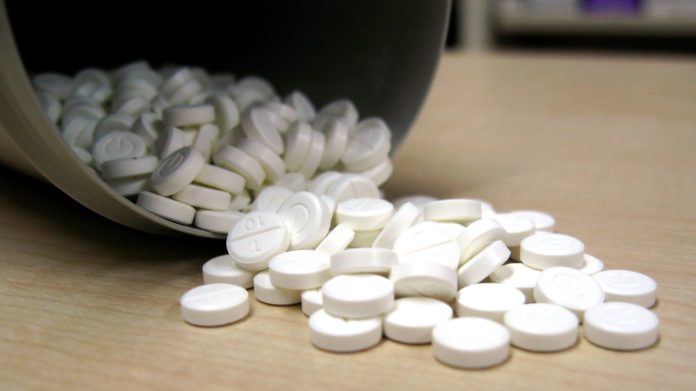Opioid abuse and overdoses are at the heart of an unprecedented health crisis in North America. While illegal distribution is the biggest contributor, these powerful painkillers are also prescribed, and they can lead to addiction.
In particular, patients need strong pain relief after surgery. Canadian biotech company AmacaThera is testing a new way to get that same pain relief without opioids through a hydrogel-based drug delivery system (AMT-143). By injecting less addictive painkillers in a gel that stays right at the surgical site, they can offer the long-lasting, localized release of painkillers precisely where they are needed most.
“It’s actually a pretty high percentage of addicts who start taking these opioids early on for surgical reasons,” said CSO Molly Shoichet in an interview with the University of Toronto. “If this could obviate the need for people to take opioids in the first place, it would have a real societal benefit.”
Shoichet, a Research2Reality co-founder and former chief scientist of Ontario, is an internationally recognized biomaterials scientist and professor of chemical engineering at UofT. AmacaThera’s technology was created at the Shoichet Lab at UofT, where researchers develop polymers for drug delivery, regenerative medicine, and tissue engineering.
The North American opioid crisis
One in five Canadian adults live with chronic pain, and prescription opioids can be an effective way to manage it when used appropriately. The issue is that they also produce a euphoric high, so usage can lead to harm including addiction, poisoning, and even death.
Canada alone experienced 4,614 opioid-related deaths in 2018 (a three-fold increase from 2008), and half of all opioid-related deaths in Ontario in 2018 were linked to prescription drugs. In the US, around 51 million people undergo surgery annually, and opioids are routinely prescribed to manage post-surgical pain. Harm reduction strategies have been effective but limited in reducing the scope of the crisis, so reducing or eliminating post-surgical opioid prescriptions could be a breakthrough.
Hydrogel technology and Inverse Thermal Gelling
Patients recovering from surgery typically receive pain medications intravenously until they are strong enough to go home and continue with oral medications. The pain is relieved, but the drugs disperse into their system and the risks persist.
With AmacaThera’s hydrogel, a water-based polymer combined with hyaluronan and methylcellulose, clinicians can inject painkillers to the surgical site without fear of them dispersing into the patient’s system. The meds release slowly over two to three days, providing long-lasting relief.
A critical property of the drug-delivery system is the Inverse Thermal Gelling technology. This allows the hydrogel to be stored and injected at room temperature, and upon entering the warmer environment of the body, it solidifies into its gel form, sealing the drugs locally where they begin to take effect.
AMT-143 Phase 1 trial and Series A financing
In October 2020, AmacaThera announced that they had received approval from Health Canada for a Phase 1 trial with AMT-143, and in February 2021, they wrapped up their Series A funding round led by Lumira Ventures for a total of $10.3 million. The funding will assist with the ongoing development of AMT-143 and expand the company’s clinical pipeline, and future projects could explore the delivery of other substances like stem cells, antibodies, and growth factors.
“I’m excited to have the opportunity to work with a talented team to make a difference in human health,” commented Shoichet. “It is particularly gratifying to see an invention move out of our lab into a company and to have the support and confidence of the VC community in Toronto and abroad.”
“AmacaThera has the potential to disrupt the way we treat post-operative pain, a key to fighting the ongoing opioid epidemic,” said Michelle Scarborough from the Strategic Investments and Women in Technology Venture Fund in the press release.
“Co-Founder and CSO, world-renowned and award-winning researcher Dr. Molly Shoichet, CEO Michael Cooke, and their team bring unparalleled expertise and scientific rigour to solving this important problem. We are thrilled to partner with them.”








































